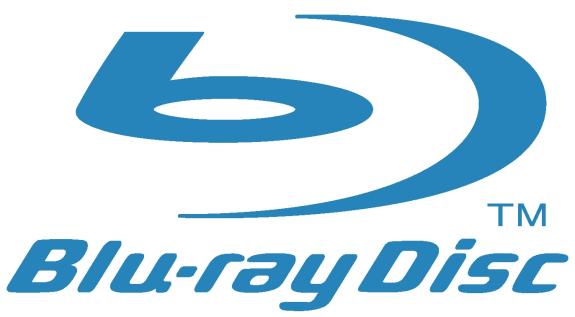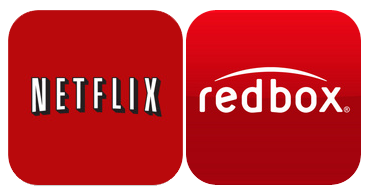Cinavia DRM: How I Learned to Stop Worrying and Love Blu-ray’s Self-Destruction
by Ganesh T S on March 21, 2012 11:00 AM EST- Posted in
- Home Theater
- Blu-Ray
- DRM
- Cinavia
DRM (Digital Rights Management) is intended to protect media from being played in an unauthorized manner. However, more often than not, it fails to serve the purpose. Many people in the content industry are fully aware that it is not possible to stop media piracy. They view DRM as a method to slow down the pirates. The panel discussion on anti-piracy measures at the HPA 2011 Tech Retreat compared this to using a key to lock a car, even though a thief with proper equipment could still steal it.
High definition content is valued by the content owners, resulting in extra efforts being taken to protect them from being pirated. For example, while standard definition Netflix streams play on a variety of platforms, high definition streams require more secure systems with protection across all stages of playback. Similarly, not much effort has been taken to stop the usage of open source DVD decrypters / decoders, which mean that the consumer doesn’t need to invest in a licensed player to play back DVDs. Open source software like VLC can play back protected DVDs without any issues.
Blu-rays, on the other hand, with their high definition content, are yet to be hacked enough to be played back with full experience using open source tools. There is a constant tussle going on between the decryption tool makers (who enable the Blu-ray disc content to become unprotected) and the Blu-ray publishers who don’t want this to happen (and try to find new ways to encrypt their Blu-rays without breaking player compatibility in the field). The net result is that almost every new Blu-ray fails to play back on a player if it doesn’t have the latest firmware updates. This is obviously a drawback for consumers who just want to put the disc in the tray and enjoy the movie.

In today’s piece, we will be concentrating exclusively on Blu-rays. A look at the market trends seems to indicate that online streaming services like Netflix and Hulu are overtaking conventional media distribution channels such as DVDs and Blu-rays. However, this doesn’t mean that optical media will die out anytime soon. Currently, a large number of consumers don’t have reliable enough Internet access to guarantee a good experience with premium streaming services. Market research indicates that Blu-ray sales have indeed shown an annual increase. This growth can be attributed to the low cost of Blu-ray players (some could be found for as low as $49 last November) and the rising number of $5 Blu-rays available in the bargain bins of various big box retailers. Blu-ray rentals from companies such as Redbox have also shown an increase in popularity.

The BDA sees Blu-ray shipments growing for the foreseeable future. However, they have also realized that the future of the Blu-ray industry lies in eventually adapting to the cloud / Internet infrastructure. The UltraViolet initiative is geared towards this. We will look at this in detail later in the piece.
The rise of VoD services will definitely threaten Blu-ray, particularly because of the ease of use associated with them. In almost all cases, one can start watching a movie on Netflix or Vudu with a few clicks. Compare this with current Blu-rays where users have to put up with a number of trailers and copyright messages before the movie starts playing. It is no wonder that consumers with high speed Internet often prefer services like Vudu over Blu-rays. Given this situation, Blu-rays continue to come with pesky DRM mechanisms. The latest in this lineup is Cinavia. Before going into its details, we will have a brief overview of all the DRM mechanisms involved in Blu-rays.










121 Comments
View All Comments
Exodite - Wednesday, March 21, 2012 - link
Ditto for Sweden.I often lament the complete lack of legal, and convenient, ways of accessing digital media.
I pay for cable access but frankly I download all my shows as it's simply that much more convenient.
I wouldn't mind paying a reasonable amount, say what I'm currently paying for cable, for access to digital media in a timely and convenient manner.
It's not happening though, which is why my shows come off the 'net and my movies are bought in hard-copy Blu-rays.
Penti - Friday, March 23, 2012 - link
Lovefilm is pretty much none existent no matter country. You can pretty much forget about any such service in EU/EEA, it's to regionalized and oligopoly oriented which basically forms distribution monopolies not even Mussolini could fatom, it's further exacerbated by the music rights which is also negotiated at a national level making it impossible to even stream stuff you own the rights for to different countries, all at national levels and too many content distributors to deal with. It's the only one field that isn't fully included in the common market. Any other service, software, games and books is fine doing cross border with no local agreements at all. Amazon sells us EU citizens about 1 million ebooks for example. I think Lovefilm in UK where most movie and TV rights go trough when they are sold to us, still has about 6000 titles on the streaming instant on version. It's nothing nothing at all compared to Amazons over 100 000 titles in the states.Even if companies in London say sell TV-rights to another country there are still some shows/networks that will have local distributors where they have been granted a monopoly over a region making it impossible to get the rights for your territory and means you can't just go to the creators and official distributors and so on. Companies in London sometimes even releases DVD's with Scandinavian subtitles but aren't allowed to sell their own movies/releases in those countries if somebody else own the regional rights, which means they might not end up doing a release at all or will be doing their own technical inferior one. Subtitling is definitively not an issue at all here.
Services with 2000-6000 titles is pretty much useless, you can't subscribe to your favorite show or see the movies you like. Your better of subscribe to some physical dvd/bd disc rental service where the offering is better. I don't know of a EU country where that isn't true at least. In US Netflix physical service of course has worse catalog then Amazon VOD and Netflix on-demand offerings.
Johnmcl7 - Wednesday, March 21, 2012 - link
Netflix has just launched here and the pricing is very good but the selection unfortunately isn't, Lovefilm instant are meant to have a slightly better selection but the market is still quite a bit behind the US. I prefer buying my films on blu-ray for the quality and not having to worry about bandwidth but I could certainly see myself using something like Netflix for films I fancy watching as one-offs.John
LancerVI - Wednesday, March 21, 2012 - link
I agree. They are promoting their own death.Ten years from now, physical media will be all but gone IMHO.
Maybe they want it this way. After all, streaming gives absolute control of the content to the provider, not the consumer.
Anonymous Blowhard - Wednesday, March 21, 2012 - link
> Maybe they want it this way. After all, streaming gives absolute control of the content to the provider, not the consumer.Bingo. They'd rather you rent it every time you want to watch it than be able to buy once and watch it forever (after the requisite 15 minutes of unskippable preview, fluff, FBI warnings, etc. See the "pirate dvd" image below :) )
Hrel - Wednesday, March 21, 2012 - link
If you are displaying it on a screen, streaming from the internet, local network, secured VPN, DVD, Blu Ray or anything else. You can make a copy of that movie in full quality. That's the bottom line, there's literally nothing you can do to stop that.If the filthy rich movie studios want to stay in business they need to just "trust" (Huh, I KNOW what a fucking concept) that the people who can afford to pay for their content will. Because they honestly WANT to support the people who made the content they like, and want more of it. This means no DRM of any kind, it doesn't work, so it's just a waste of money. And, this is the big one, lowering prices. A LOT. I don't mean instead of releasing at 25 dollars USD release at 20, I mean release at 5, and let it drop RAPIDLY!!!
Get with the times. I don't even own DVD's anymore, I have 6TB of external storage, with redundancy. I don't want 5000 physical cases laying around my house when I can have ONE NAS. If there's no physical media to buy, just a digital copy you download off the internet. That means there's less cost. No disc, no case, no artwork for either. No shipping and no middle man. (The retailer selling the physical media). Meaning digital copies should be quite a bit cheaper, not the same price, not even close.
It seems like perfectly clear common sense to me, and everyone I've seen on reddit or any other online forum. How out of touch do studio execs have to be to continue trying to hold on to how things were in the mid 1900's and on? Seriously, it's 2012, move on.
cmdrdredd - Wednesday, March 21, 2012 - link
no....Stream dual 1080p video for 3D with a DTS-HD MA audio track and then MAYBE....You can't stream that off netflix or hulu. The bandwidth coming from a Blu-Ray is much higher than you could stream on most internet connections.
" The net result is that almost every new Blu-ray fails to play back on a player if it doesn’t have the latest firmware updates."
Wrong buddy...I have a first gen Samsung Blu-Ray player and haven't ever once had a disk not play. Some load slowly, but that's because the drive is not as speedy as newer models. Everything works though and always has.
Botia - Wednesday, March 21, 2012 - link
I have started timing how long it takes to get bluray movies to play from the time the disc is inserted until the time when the main movie is playing. Any thing possible to speed up the process is done, such as using the disc menu, next track, fast forward, etc.What I have found is that it takes on average 15 minutes to start a movie. In our age of instant gratification this is nauseating. One movie took 2 hours before giving up. It insisted on downloading previews from the Internet and playing them. While the picture and sound quality is significantly better than other media, the user experience is so far behind. How do they expect to survive?
One special note, Transformers: Dark of the Moon started up almost immediately. Thank you!
Colin1497 - Wednesday, March 21, 2012 - link
We actually got a movie the other day that wouldn't let us skip ANY of the previews, and to top it off, we were interrupted watching it had to reboot it and wait through all the previews a second time. The studios really know how to make everyone hate them.superccs - Wednesday, March 21, 2012 - link
It takes less effort to pirate the movie you want to watch then to get it through any other source.This is like going to a nice expensive restaurant not get seated promptly, having the service suck, and food take forever. So you go home and make whatever you originally wanted off their menu and tip yourself handsomely.
Why should anyone pay for an inferior product/service especially when you are trying to attract the business of a bunch of cooks.